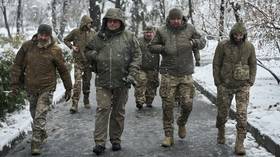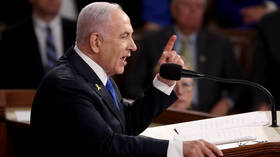Turkish teenagers locked in 30-year civil war
Turkish jails are holding an increasing number of children since the country’s anti-terrorism law was changed. Teenagers are prosecuted as adults for rallies or being associated with the banned Kurdish Workers Party.
For decades Turkey has been locked in a fight with Kurds demanding a separate homeland.
The Kurdish Workers Party wants to create an independent Kurdish state and the separatists call themselves freedom fighters. But Turkey regards them as an active terrorist group, so anyone connected with the party is considered a terrorist.
Changes to Turkey’s anti-terrorism legislation, introduced in 2006, recognized teenagers’ part in the battle.
Children aged between 15 and 18 can be tried as adults. The human rights group Justice for Children wants parliament to abolish these changes, as they violate the UN's Convention on Children’s rights, which Turkey signed more than a decade ago.
Since the law was amended, according to human rights organizations, more than 2000 minors were tried for acts of terrorism, when allegedly taking part in different demonstrations. All of them were Kurdish. And even though it’s not official, many lawyers say these amendments were made to curb the mobilization of Kurdish youngsters against the state.
The law here says stones are weapons, and throwing them at the police can be treated as an act of terrorism and lead to lengthy prison sentences.
“For throwing stones at police, or at soldiers especially, Kurdish kids can get 7 years, 10 years, 20 years imprisonment in Turkey. But until now the highest sentence has been 7 years for children,” says Fazil Ahmet Tamer, a lawyer specializing in human rights violations.
YaÅŸar Adıgüz turned to a Human Rights organization after his 17-year-old son was apparently beaten by police. He was held for organizing propaganda for the Kurdish Workers Party.
“I absolutely don’t believe in the justice system of this country. My son is just a child and he did nothing wrong, but he is in jail now, they’ve kept him in prison for 3 months without any trial,” Adiguz says.
16-year-old Hebun Akkaya spent 10 months behind bars for allegedly throwing stones at police and protesting against the state, which he denies.
“I was going home and I saw that many people were running away and I was scared and ran away too, but they ran after me and arrested me. I told them that I didn’t participate in the demonstration but they didn’t believe me and they beat me in the police station and then they tried me in court,” Akkaya says.
Akkaya says that, after he left jail, the school principal wouldn't take him back, saying that his classes are not for criminals. Even some of his friends abandoned him. Hebun says joining the rebel fighters was never an option. He now wants to become a lawyer – and fight his country’s legal system in the courts.
The laws were toughened in an effort to prevent teenagers from joining the banned Kurdish Worker’s Party. But according to human rights campaigner Neslihan Akbalut the harsh measures are having the opposite effect.
“From the families of children I have heard that there are some children who are considering going to mountains to be in terrorist organizations; in terrorist groups,” Akbalut says.












